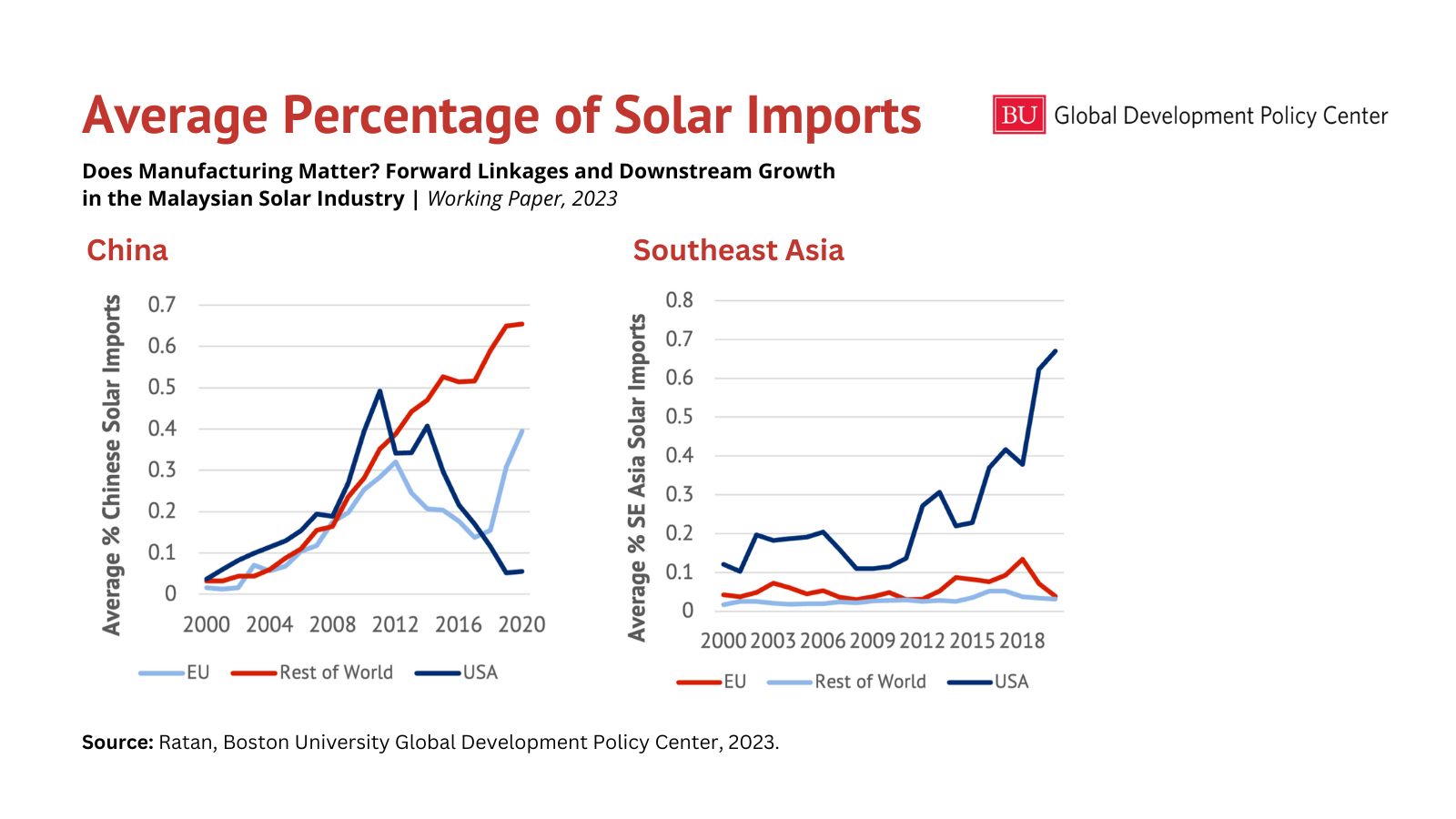Analyzing The TACO Trade Agreement: Sources Of Trump's Ire

Table of Contents
Perceived Unfair Trade Practices within the USMCA Trade Agreement
Trump's opposition to the USMCA, and its predecessor NAFTA, stemmed from deeply held beliefs about unfair trade practices. He consistently framed the agreements as detrimental to the American worker and economy.
Trade Deficits and Manufacturing Job Losses
Trump frequently pointed to persistent trade deficits with Mexico and Canada as evidence of the USMCA's failure. He argued that the agreement led to the outsourcing of American jobs and contributed to the decline of American manufacturing.
- Specific sectors impacted: The steel, automotive, and agricultural sectors were frequently cited as experiencing significant job losses due to trade with Mexico and Canada.
- Statistical evidence: While precise figures attributing job losses solely to the USMCA are difficult to isolate, Trump's administration often highlighted overall manufacturing job losses and trade deficits as evidence of the agreement’s shortcomings. Independent economic analyses provide a more nuanced perspective, considering various factors beyond the USMCA.
- Unfair competition rhetoric: Trump repeatedly accused Mexico and Canada of engaging in unfair competition, citing practices like currency manipulation and subsidized industries.
Intellectual Property Rights Concerns
Another significant concern for Trump was the perceived inadequacy of intellectual property (IP) protection within the USMCA. He argued that the agreement failed to adequately address issues like patent infringement and counterfeiting.
- Affected industries: The technology and pharmaceutical industries were particularly vocal about their concerns regarding IP theft, citing losses due to counterfeit goods and unauthorized use of patented technologies.
- Legal and economic arguments: The legal framework surrounding IP protection within the USMCA was extensively debated. Critics argued that enforcement mechanisms were weak, leading to insufficient protection for American innovators.
- Specific clauses: While the USMCA did contain provisions addressing IP rights, Trump and his administration argued that these provisions were not strong enough to deter IP theft effectively.
Political and Domestic Motivations Behind Trump's Opposition
Beyond economic concerns, Trump's opposition to the USMCA was deeply intertwined with his political strategy and broader policy goals.
Domestic Political Strategy and the 2020 Election
Trump skillfully leveraged his opposition to the trade agreement as a tool to consolidate support among his base. His populist rhetoric resonated with voters who felt left behind by globalization and economic changes.
- Anti-globalization sentiment: Trump's stance tapped into a growing wave of anti-globalization sentiment, portraying himself as a defender of American workers against unfair trade practices.
- Electoral strategy: Opposition to trade deals like the USMCA became a central part of his electoral strategy, appealing to voters in key states with significant manufacturing sectors.
- Media coverage: Media coverage of Trump's stance significantly shaped public opinion, further amplifying the political dimension of the debate.
Populist Rhetoric and the "America First" Agenda
Trump's opposition to the USMCA aligned perfectly with his broader "America First" policy agenda. This approach emphasized protectionist trade policies and prioritizing American interests above international cooperation.
- Populist appeal: Protectionist measures often hold populist appeal, promising to safeguard domestic jobs and industries against foreign competition.
- Rhetoric used: Trump and his administration employed strong rhetoric, portraying the USMCA as a "bad deal" that harmed American workers and businesses.
- Nationalistic framing: The narrative consistently framed the issue as a fight for American sovereignty and economic independence.
Economic Analysis of the USMCA Trade Agreement and its Impacts
Analyzing the USMCA's economic impact requires a nuanced approach, considering both short-term and long-term consequences.
Short-Term vs. Long-Term Economic Consequences
The immediate economic effects of the USMCA were subject to ongoing debate. Some argued that it led to short-term disruptions but ultimately fostered long-term economic growth. Others maintained that its long-term benefits were uncertain.
- Positive arguments: Supporters highlighted increased trade and investment flows, along with the potential for greater economic integration between the three countries.
- Negative arguments: Critics pointed to potential job losses in certain sectors and the risk of increased trade deficits.
- Data and expert opinions: Numerous economic studies and reports offer varying perspectives on the USMCA's impact, highlighting the complexity of disentangling its effects from other economic factors.
Comparison with Alternative Trade Policies
Comparing the USMCA with alternative approaches to trade provides a broader context for evaluating its effectiveness.
- Bilateral agreements: Bilateral agreements offer a more tailored approach to trade, potentially allowing for more targeted negotiations and solutions.
- WTO regulations: Compliance with World Trade Organization (WTO) regulations ensures a more predictable and rule-based international trading system.
- Feasibility of alternatives: The political feasibility of alternative trade strategies depends on the prevailing political climate and the willingness of participating countries to negotiate and compromise.
Conclusion: Understanding Trump's Discontent with the USMCA Trade Agreement – A Retrospective
Trump's opposition to the USMCA was a complex phenomenon driven by a confluence of factors. Perceived unfair trade practices, domestic political strategy, and a broader "America First" agenda all contributed to his strong stance. While the economic impacts of the USMCA remain a subject of ongoing debate, understanding the political context surrounding its negotiation and ratification is vital. The USMCA trade deal, and Trump's reaction to it, serves as a case study in the complexities of international trade agreements and the interplay between economic realities and political motivations. To further your understanding of the USMCA and its lasting effects, explore resources like reports from the Congressional Research Service and academic papers analyzing the agreement's impact on various sectors of the American economy. Engaging in informed discussions about the implications of trade agreements and their effects on domestic and international economies is crucial for shaping future trade policies.

Featured Posts
-
 Insults Whistles And Gum The Challenges Faced By Opponents Of French Players At Roland Garros
May 30, 2025
Insults Whistles And Gum The Challenges Faced By Opponents Of French Players At Roland Garros
May 30, 2025 -
 All Air Jordans Releasing In May 2025
May 30, 2025
All Air Jordans Releasing In May 2025
May 30, 2025 -
 Southeast Asian Solar Imports Face Steep Us Tariffs A 3 521 Duty
May 30, 2025
Southeast Asian Solar Imports Face Steep Us Tariffs A 3 521 Duty
May 30, 2025 -
 Drogenfund In Bayern Frau Vor Gericht Wegen Marihuana Verkauf Im Automatenkiosk
May 30, 2025
Drogenfund In Bayern Frau Vor Gericht Wegen Marihuana Verkauf Im Automatenkiosk
May 30, 2025 -
 Gorillaz 25th Anniversary London Shows And Exhibition Announced
May 30, 2025
Gorillaz 25th Anniversary London Shows And Exhibition Announced
May 30, 2025
